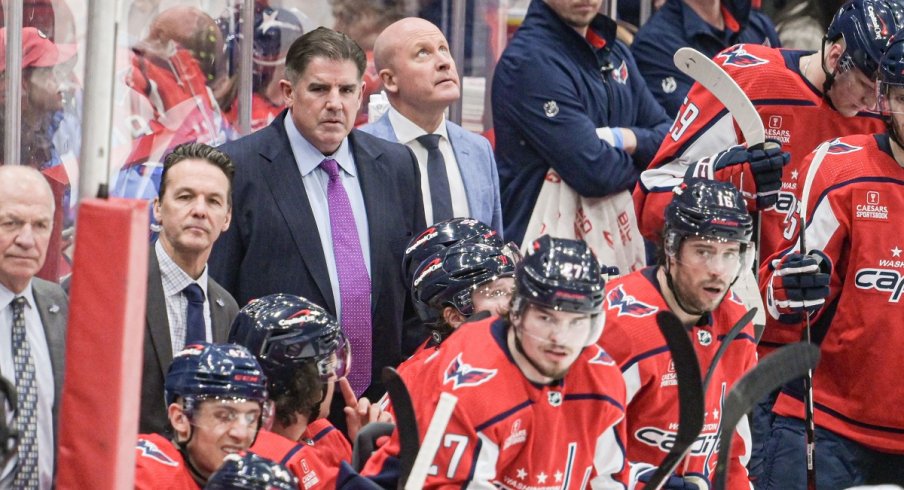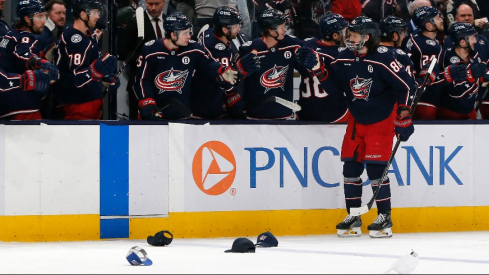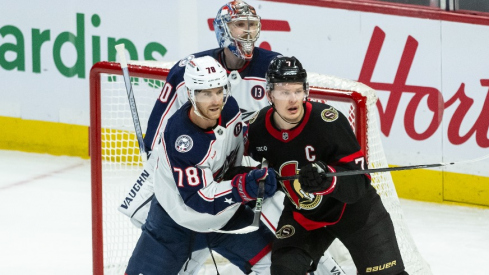The stakes are high for the Columbus Blue Jackets as they look to hire a new head coach in the coming days.
This could well be the last chance for GM Jarmo Kekalainen to hire a coach, so all options must be considered. The organization has been linked to a number of coaching candidates from various backgrounds.
On the far end of the spectrum are the experienced, old-guard coaches, like Peter Laviolette and Mike Babcock. Ignoring the obvious off-ice issues surrounding Babcock, both are well-tenured NHL head coaches with a track record of coaching success. On the other end of the spectrum is someone like Sergei Fedorov, who has never coached in the NHL and is seen as a progressive, 'new age' coach.
From an organizational standpoint, neither 'ends' are necessarily right nor wrong. Still, the decision to bring in someone like Fedorov is probably a bridge too far for a team at this stage in its development. As much as fans are tired of hearing it, the reality is this is still a very young team in need of structure and development. Whoever is brought in will need to help shepherd a culture that is demanding but also understands where the team is in its growth.
The issue, then, is that Kekalainen can't afford to risk his job on just any coach. For him, this has to be the right hire. With Brad Larsen, it was clear that this was a team in transition. Growing pains were to be expected. Two years later, this is still a team in transition, but the road map has changed. The signing of Johnny Gaudreau certainly impacted the calculus, but so too did the subsequent disaster of a season. Now the club will head into the new season with a handful of young players taken high in the first round, namely David Jiricek, Cole Sillinger, Kent Johnson, and possibly whoever is taken in the upcoming draft, charged with catapulting the team from the basement to, well, the first floor.
That's why a coach somewhere in the middle seems to be more likely. On Sunday, The Athletic's Aaron Portzline reported Laviolette and Babcock were 'unlikely' at this point, and that Fedorov was 'not happening'. That leaves a group that includes, in no particular order, current associate coach Pascal Vincent, Patrick Roy, Travis Green and Kirk Muller.
Hiring Vincent would be a difficult needle to thread, though that may be unfair to Vincent. The 51-year-old was in the running for the job in the Larsen cycle but lost out, and has reportedly interviewed elsewhere this spring as well. He's probably deserving of a head coaching job somewhere, but I do think the concept that 'for the second straight time, the best person for the job has been an internal candidate' would be a tough sell.
Others, like Green and Muller, are former NHL head coaches that have been biding their time for another head coaching opportunity. The same can be said for Brunette, though he has less experience (and was reportedly hired by the Nashville Predators on Tuesday).
On the other hand, his star is probably brighter than the former two given his success winning the President's Trophy behind the bench of the Florida Panthers last season and as an assistant with the young and talented New Jersey Devils this season.
Roy, as always, is complicated. He has NHL coaching experience, though it ended when he abruptly quit just before a new season was set to begin. In the years since he's done well coaching the QMJHL team he owns, but his ell-encompassing involvement with the Quebec Remparts is unique to junior hockey. Still, his pedigree, intellect, and experience make him an interesting candidate.
A modern NHL head coach is akin to a CEO in that it is their role to set the culture and tone of the organization. We've seen plenty of examples of recent coaching changes paying immediate dividends. The Boston Bruins won the President's Trophy this season with a first-year head coach. Both teams in the Stanley Cup Final are being led by first-year head coaches.
All three of those coaches are 'retreads'. Clearly, those teams were all ready to compete immediately, but the lesson is that there isn't all that much different from an "X's and O's" standpoint. These teams benefitted from their new systems and strategies, sure, but I would argue that it was the new voice/change in culture that was the catalyst.
Could someone like Vincent, who has worked with the current roster for several years, be that new voice? What about someone like Roy, who has worked primarily with junior players? Brunette seemed to be the best of both worlds, a younger coach who played in the NHL for a long time and that has the pedigree of working with several high-end NHL teams in the past two years.
For this team, at this stage, getting the right tone to lead the organization is paramount.


